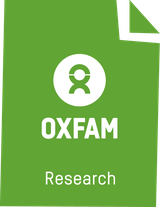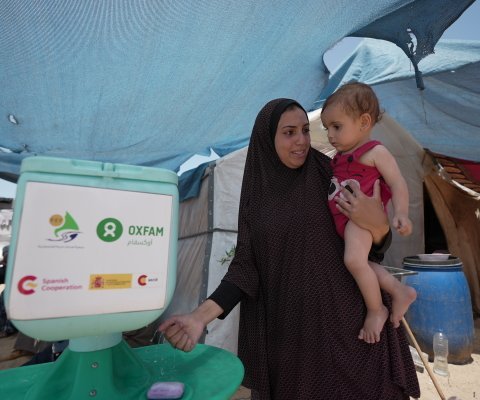Research
Search research reports
-
Research
Through the Lens of the Citizen Scientists: Protecting Maritime Ecosystems
This case study documents the power of citizen engagement for generating knowledge and action on environmental protection.

-
Research
Mozambique experiences from the First National Congress of Resettled and Affected Communities by the extractive industry
This case study summarizes the experiences of advocacy and mobilization surrounding the First National Congress for Resettled and Affected Communities by Extractive Industries

-
Research
Zero Hunger, Zero Emissions: Land-based climate change mitigation, food security, and equity
This report seeks to identify the threats to equity posed by certain land-based climate change mitigation strategies and the potential impacts of these threats on food security and other human rights, in order to sound the alarm on current and potential future inequalities. At the same time, this report highlights opportunities to decrease greenhouse gas (GHG) concentrations while enhancing multidimensional equity, and thus safeguarding food security and other human rights, by keeping equity at the core of land-based climate change mitigation actions. Making informed and comprehensive policy and programming decisions requires assessing both the biophysical and social impacts of climate change mitigation strategies. The results of this report highlight both opportunities and potential trade-offs, showing how Oxfam, its partners, and the broader community of climate change and development actors can proactively achieve reductions in GHG concentrations while ensuring food security and other human rights.

-
Research
Can Haiti's Peanut Value Chain Survive US Generosity? Political economy analysis
Research by PAPDA (the Haitian Advocacy Platform for Alternative Development) and Oxfam found that peanut value chain actors in Haiti face a number of serious constraints, including nonexistence of state support; weak organization; use of traditional production methods; and lack of access to irrigation and inputs, including herbicides to control aflatoxin, all in a context of poverty and vulnerable livelihoods. Most of those interviewed have peanut-related earnings insufficient to cover living expenses. However, most expressed satisfaction with their value chain activities. Women in particular reported achieving a measure of economic empowerment, despite limited earnings. With the right policies and agricultural programs, Haiti has the potential to achieve self-sufficiency and pursue export opportunities.
The US peanut value chain, in contrast, features highly subsidized production, precision technologies, and politically well-organized farmers who engage in unabashed rent seeking. This leads to overproduction and pressures to develop foreign markets and use peanuts in food aid, such as the 2016 donation of 500 metric tons of dry roasted peanuts to Haiti. But such surplus dumping is incoherent with longstanding US agricultural aid aimed at boosting Haitian peanut productivity and overcoming severe aflatoxin issues.
The paper recommends that the Haitian government provide significant support to the peanut value chain. It encourages the United States and other donors to continue providing aid to Haitian peanut production, while avoiding agricultural trade policies that undermine such assistance.

-
Research
Anchored in Local Reality: Case Studies on Local Humanitarian Action from Haiti, Colombia, and Iraq
Critiques of international humanitarian aid have long suggested that it needs to be more inclusive of actors from crisis-affected countries. Increased attention to this issue over the past decade or so has coalesced into a set of agendas often referred to as the “localization” of humanitarian assistance, “local humanitarian leadership” (LHL), and “local humanitarian action” (LHA). However, there is little consensus about key definitions and concepts related to these terms. What does “local” actually mean? Who qualifies as a “local humanitarian actor”? What are the goals of these agendas? In general, these conversations have been led by and focused on the experiences of international humanitarian actors, which in turn has shaped the discourse about both the status quo and necessary reforms. Recently, there have been increased efforts to re-center the voices of local humanitarian actors in these conversations. This paper offers deep insight into fundamental questions of this discussion in three different contexts: a region of Haiti recovering from a hurricane, displacement and political crisis in Iraqi Kurdistan, and the overlapping pressures of migration, conflict, and climate change in Colombia.
Also included here are versions of this work that focus on Haiti and Colombia which are translated into Haitian Creole and Spanish respectively.

-
Research
Voters Support A Response To The Coronavirus That Meets The Scale Of The Crisis
The Covid-19 virus is posing enormous challenges to the United States and world at large. We are suffering both an acute public-health emergency and a staggering blow to the economy. In order to save lives, protect working families, and boost our economy in sustainable and healthy ways, we need to take actions that are swift, bold, and well beyond what Congress has thus far been willing to approve.
Oxfam partnered with Data for Progress to poll a host of policies designed to combat the coronavirus and corresponding economic crises it has triggered. We find that the initial bill passed by the House has strong public support - but that there is a similarly strong appetite in the public for a substantially more ambitious response. Given the drastic situation at hand and the public mandate for action - Congress can and should pursue an ambitious recovery agenda.



